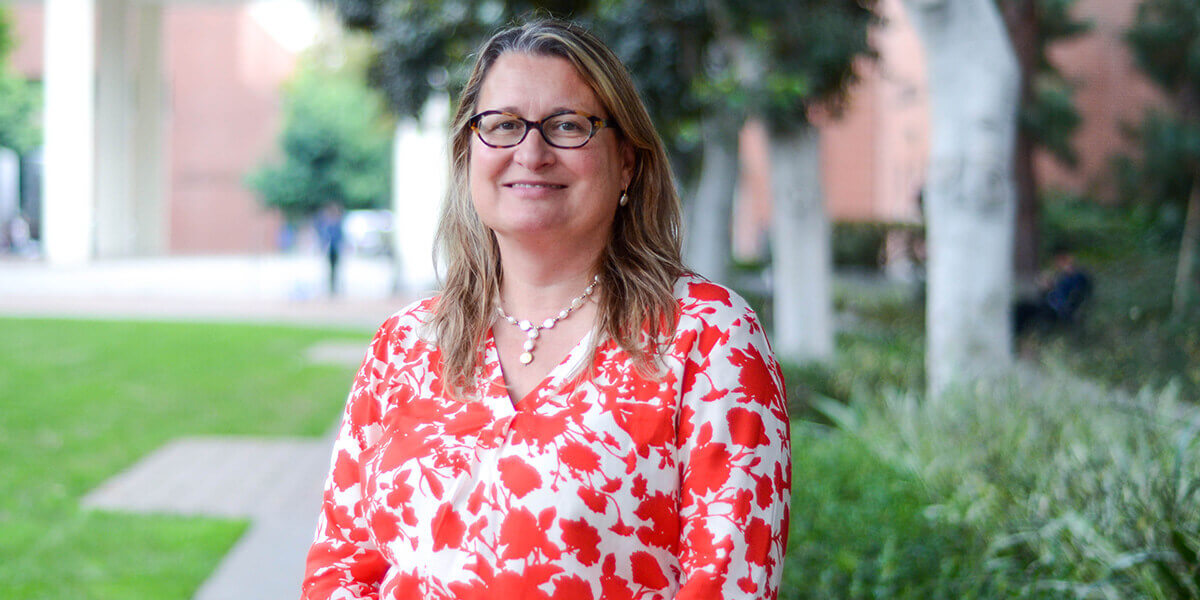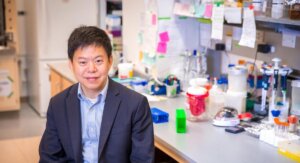
In her new role, Gil will be responsible for organizing large interdisciplinary efforts in artificial intelligence and data science. Photo/USC Viterbi.
Yolanda Gil, a research director at the USC Information Sciences Institute (ISI) and research professor at the USC Viterbi School of Engineering, was recently appointed as ISI’s director for major strategic initiatives in AI and data science.
In her new role, Gil will organize large interdisciplinary efforts where artificial intelligence and data science are used to solve real-world problems.
“There are incredible researchers at ISI, working on very diverse and important areas of AI, and I am excited to work with everyone to tackle bigger problems together,” Gil said.
ISI, a famed USC research institute in Marina Del Rey, is known for its scientific breakthroughs: from the creation of the dot com naming system, developing the protocols of the Internet to recently contributing to the Nobel Prize winning discovery of gravitational waves in 2016.
According to Gil, artificial intelligence has the potential to improve healthcare, education, security, social justice, business innovation and even personal well-being.
“We want to prioritize areas where the AI research being done at ISI and USC can have the most impact,” Gil said. She will be responsible for planning these efforts, including identifying problems to pursue, organizing appropriate teams, and helping to write proposals to get funding.
“When you are studying intelligence, you realize that many of our challenges can be better addressed with multi-perspective approaches,” Gil said. “I think that by working on big questions together we will make great breakthroughs.”
Said Craig Knoblock, the Michael Keston Executive Director of ISI and a USC Viterbi research professor of computer science: “I’m thrilled that she agreed to take on this role because I think she is the ideal person to help us go after such large initiatives.”
Gil was chosen for this role because of her almost 30 years of research contributions to ISI, her broad experience organizing interdisciplinary efforts and her long history of leadership in AI research. At ISI, Gil is a principal scientist and director of knowledge technologies. On July 1, she became director of the USC Data Science Program. Additionally, she has served for the past two years as the president of the Association for the Advancement of Artificial Intelligence (AAAI), the world’s premier scientific society for AI.
Gil’s personal research focuses on artificial intelligence for scientific discovery. Scientists formulate hypotheses, gather data, analyze data and make conclusions. Gil’s research works to program artificial intelligence to do these same tasks. She collaborates with scientists in a wide variety of disciplines, particularly those working on biomedical, environmental and geoscience problems.
“Scientists pose questions, gather the data needed to answer them, analyze their data, and decide how to answer the question based on that analysis,” Gil said. “I study how we can use AI to represent a scientist’s reasoning, to capture the steps of data analysis methods and their constraints, to decide which method is best for new kinds of data, to detect and resolve contradictions, to collaborate, to explain the steps that were followed, and so on.”
Gil is excited that, in her new role, she will get exposure to research in a broad range of areas.
“My favorite part of being a researcher is learning about areas that I am not familiar with,” Gil said. “As we formulate joint projects, I get to ask questions and hear the questions that others raise. There is a moment when ideas start to converge towards a joint vision, and I find that is a really magical and very satisfying process that I enjoy enormously.”
Published on August 19th, 2020
Last updated on August 19th, 2020













